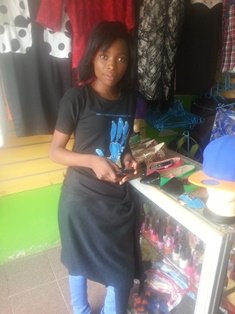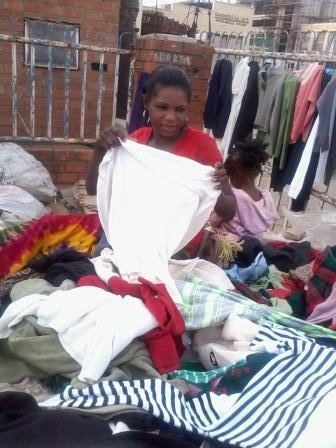By Alka Subramanian | Executive Director/Founder
Thanks for supporting Power of Love’s micro loans program that empowers women by providing them with business training and loans. Once the women complete their training and receive a loan, they start a business and work hard to make it grow. Our loan officers advise the women and monitor the businesses via weekly loan meetings, field visits, refresher training and business mentoring sessions. Continuous monitoring of businesses has helped the women run their businesses well and keep on track with repayments.
Our loans program is located in the community of Matero - one of the largest and poorest compounds in Lusaka with a population of approximately 80,000-85,000 people. This community is characterized by a high incidence of HIV/AIDS (prevalence rate of 14% among adults aged 15-49), and unemployment rates upwards of 60%. As a result most people are poor and live on less than $1 per day. Given this difficult environment, women benefit from learning a marketable skill and running a profitable small business.
Profile of our Women Entrepreneurs
The age range of the women is from 33 to 65 years old, and 70% are single or widowed. On average each women cares for a total of 6 or more people, out of which 5 are children. A majority of the women start new businesses; the rest expand existing businesses. Businesses chosen by the women are quite diverse and range from groceries (mealie meal - a Zambian staple, cooking oil, rice, sugar, eggs, fruits, vegetables, and beans), to dressed chicken, dried fish, toys, restaurants, charcoal, baby blankets, books, and a salon etc. The majority of the women start tiny grocery stores located close to their homes. A few women sell used clothes and shoes. Many ladies travel by bus to the City Market in Lusaka, purchase used clothing, toys, and shoes and resell these at a better price in their community. Many businesses such as charcoal, rice, beans and sugar involve the women buying in bulk, repackaging the item in smaller quantities and reselling. All of these businesses add value for the community members as they are located within walking distance from their homes and the community is able to purchase smaller and more affordable quantities.
What is Unique about Our Program?
In addition to loans and business training, many women receive support from our pediatric HIV/AIDS care and malaria prevention programs. Support from these two programs (in the form of food, medicines, a package of health care services, and malaria bed nets) helps the women take care of their HIV+ children, and keep them healthy. This extra support enables women to devote more time to their business increasing its chances of success.
Impact of our Loans Program
Earnings from businesses enable most women to improve their diet and nutrition, send/keep their children in school, purchase household items like pots, pans, carpets, toys, start saving via bank accounts or at home, expand their business, and increase their original capital.
As the women gain valuable experience and expertise in their line of business they become more confident, work hard to provide for their families, and become role models for others (both men and women) in the community. A few dynamic women pool their resources and work together so as to be able to buy and sell larger quantities, and support each other after they are weaned off our program. For example, a group of five women who live in the same area decided to pool their loan capital and work together. They designated two women to travel to Malawi and purchase bales of used clothing at much lower prices than in Lusaka, Zambia. The women saved on transport expenses by sending only two ladies. They started selling used clothing and since their business was doing well, they wanted to move out from their rented apartments. Again they decided to pool their savings and purchased a big plot of land. This cost them less than if they had bought individual pieces of land. Now each one of them is an owner of a small piece of land and their dream is to build a small house in the near future.
Overall, the women are happy that they can take better care of their families, keep/send their children to school, are confident about their future and plan to continue working hard to expand their business and earnings potential. By the end of the third and final loan cycle most businesses are doing well, and the women on the path to self-reliance (both economic and social).
Thanks for caring.
Links:
Project reports on GlobalGiving are posted directly to globalgiving.org by Project Leaders as they are completed, generally every 3-4 months. To protect the integrity of these documents, GlobalGiving does not alter them; therefore you may find some language or formatting issues.
If you donate to this project or have donated to this project, you can receive an email when this project posts a report. You can also subscribe for reports without donating.
Support this important cause by creating a personalized fundraising page.
Start a Fundraiser
